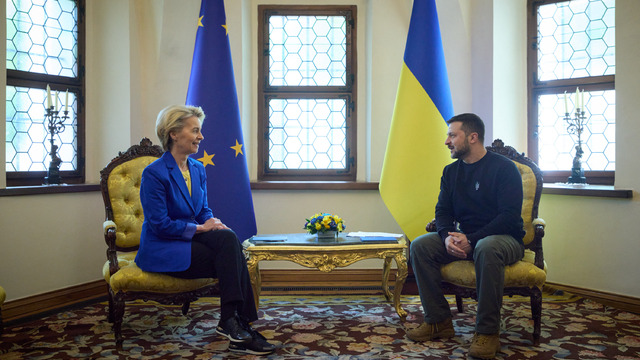Attack on the CEU in Hungary - Attack only on academic freedom?

In 2014, Hungarian prime minister Viktor Orbán has declared to build an “illiberal state” in Hungary, while constantly referring to leaders like Vladimir Putin in Russia or Recep Tayyip Erdogan in Turkey as examples. This has been seen by many as a gradual march toward authoritarianism. While this – and many other policies – have been heavily criticized by many ever since, these have gained a new momentum with the prime minister and his circles turning against the Central European University.
In 2014, Hungarian prime minister Viktor Orbán has declared to build an “illiberal state” in Hungary, while constantly referring to leaders like Vladimir Putin in Russia or Recep Tayyip Erdogan in Turkey as examples. This has been seen by many as a gradual march toward authoritarianism. While this – and many other policies – have been heavily criticized by many ever since, these have gained a new momentum with the prime minister and his circles turning against the Central European University.
Introduction
The Central European University (CEU) has been founded after the political changes of 1989–1900, to assist Central and Eastern Europe to overcome the legacy of communist regimes and to implement “western” research and education methods, assisting in developing students’ ability and willingness to critical thinking, to accept and respect the diversity of views and opinions. The CEU has soon become an important focal point and central institution in Hungarian academic sphere, building good relations with other academic institutions, NGOs and even government circles.
At that time already, Viktor Orbán’s government has started its fight against organizations standing up for democratic values and human rights, the first sign of which has been the smear campaign and investigations against NGOs responsible for distributing the financial support of the Norway Grants in 2014. After that failure (the courts have eventually cleared the organisations of any wrongdoing), the demonization of mostly human rights NGOs has continued, especially as these organisations have become very critical with the government during the developing refugee crisis, which has become the number one political issue for the government (read more about this in an earlier Reflection, on the Hungarian quota referendum). This just become even more intense after the first migration-related case in front of the European Court of Human Rights, where the Strasbourg court not surprisingly has found many new Hungarian legislation being incompatible with the European Convention on Human Rights. Governmental communications have been
organised around the element of NGOs are “attacking” Hungary, assisting “economic migrants” and “Muslim conquerors”, who are funded by George Soros, and trained at the “University of Soros”. The prime minister even said at one point in an interview, that the Strasbourg judge is somebody from the “Soros university”, so that is how it all comes together – completely ignoring the fact, that the seven members of the chamber of the court has made a univocal decision in the case, regardless of the Hungarian member during that case, Professor András Sajó ever having been employed by that university or not.
If anyone tries to maintain an optimistic, good-willed view, communication from and around the government has left no space for that. Labelling the CEU simply as “Soros university”, the NGOs critical to government policies as “Soros organisations” (the similar attack against them will be addressed in an upcoming International Law Reflection), at one point reaching the historical depth as referring to George Soros numerous times childishly as “uncle Georgie” in a press meeting by the leader of the parliamentary group of the governing party show that there is a centrally decided communication strategy. Smear campaigns against George Soros is not a novelty, the investor has for a long time been a favourite target for various leaders of authoritarian regimes, but the use of his name so intensely is something not seen in Hungary from the government, only from extreme right wing political groups so far. The situation is nearly identical to today’s Turkey, where President Recep Tayyip Erdogan uses the name of Fethullah Güllen to stigmatize anything he feels to danger his power, especially since the summer coup.
This attack now is not without any absurd controversies though. Viktor Orbán himself had been a recipient of a Soros grant during the era of political changes. Zoltán Kovács, the current spokesperson of the government has had his whole PhD studies financed by Soros funds and got his PhD from the CEU. Even now, while these individuals have seemingly forgotten this, a deputy secretary of state is attending the CEU Business School, his tuition fee being covered by the Ministry of Foreign Affairs and Trade.
The new piece of legislation, targeted on CEU
The proposal for the amendment on the law on higher education has been introduced on March 28, 2017 to the Hungarian Parliament. Aiming to “provide guarantees to quality of higher education”, it has contained new, seemingly arbitrary criteria that has to be met by all foreign higher education institutions (currently 27 others as well), but some of which obviously affecting only the CEU.
One of these is the condition of the conclusion and mutual ratification of an international treaty between Hungary and the other foreign state by February 15, 2018 – without this, the given foreign university loses its license to operate in Hungary. This condition raises more concerns. The first one is that this exposes not only the CEU, but any other universities to the political mercy of their respective governments (while their home licence may be issued by independent domestic organs, their international presence can be limited by the government), which gives possible political considerations above academic ones. The second one – especially related to the CEU – is that it is legally impossible. CEU is accredited in the state of New York, not by the federal government, and the latter does not have the competence to engage in an international treaty on this matter – as reaffirmed by the assistant secretary of state, visiting Hungary. What’s more, this problematic condition has been reaffirmed at the very last second with an additional amendment to the proposal, expressly stating that “in case of a federal state, the federal government’s approval is
needed”, just to make sure that there is no mistake.
An additional condition under the new rules is, that foreign universities may only function in Hungary, if they also operate a campus in their home country. As the CEU had never had a campus in the state of New York (or anywhere in the United States, which is a common practice among American universities operating internationally), this fulfilment of this provision would put a very heavy, if not impossible burden to the institution.
Possible legal counteractions
After the proposal on the amendment of the law on higher education has been adopted by the Parliament on 4 April (after an “urgent” procedure, without any good reasons, but with a very dubious legal base, as demonstrated in the next section) and signed into law by the President (despite of thousands of people rallying against it on the streets of Budapest), it has become needed to assess the options of trying to strike it down.
Seeking a nullification procedure at the Constitutional Court has become significantly more difficult since Fidesz had used its constitutional majority to re-write the rule regulating its operation. Since the new constitution (the so-called Fundamental Law) is in force, it is not possible to ask for a revision by any individual (actio popularis), only by one fourth of the members of the Parliament can initiate it (among other ways, not applicable here). Currently, the procedure has been initiated this way, forming an unusual ad hoc cooperation including representatives of the extreme right wing as well– while it could have been initiated by the President as well before singing the adopted proposal into law, but he had not done it. The proceeding of the Constitutional Court is currently on its way, a food for thought and argument is going to be
demonstrated by me in the next section.
The European level also offers some possibilities: if a member state legislation violates European Union rules, the European Commission may initiate an infringement procedure, finally taking the case to the European Court in Luxembourg to decide about the conformity of the member state’s legislative action. The European Commission has found itself in a very uncomfortable situation. An earlier communications campaign by the Hungarian government against the EU had already raised the need for reaction, and as a result, the Commission has published its opinions on that, a move unprecedented in the history of the institution. Important elements of this have re-appeared in the speech of VicePresident Frans Timmermans in the European Parliament’s debate on Hungary on 26 April, and it was also published that the Commission takes the first step towards initiating an infringement procedure.
On 2 May, the minister responsible for justice (whom prime minister Orbán has vested with handling the situation after the strong messages from the EU institutions and the European People’s Party, a move considered by many as an attempt to distance himself from the politically uncomfortable subject) has given an interview, where he has outlined some of the possible directions of the government's arguments. It seems to be based on the lack of Union competence in the issue: firstly because of the provisions apply only for universities from non-EU states, secondly because according to his opinion, education is not equal to simply the providing of services. The answer to the Commission is due this May, it is not impossible that the case will continue in front of the European Court in Luxembourg, especially due to the fact, that while Viktor Orbán has set a milder tone towards the European institutions and especially the EPP, after returning home,
nothing has changed not even his “domestic” communications.
An additional opened possibility to consider taking the case of the CEU to the European Court of Human Rights, working in the framework of the Council of Europe. The legal base of this could be the violation of right to fair trial, as the state legislation imposes obligations possible leading to impossibility of the institution’s operation, without any chance to comply with it. According to leaders of the CEU, they would consider this opportunity as well.
An invalid law, or even criminal one? An argument against the constitutionality of the law
As indicated above, the amendment have been adopted by an urgent procedure. Urgency was requested by the deputy Prime Minister Zsolt Semjén, in his official letter, dated 3 April 2017, Budapest. While there is absolutely no acceptable reason of employing the urgent procedure in this case, which can be an argument in front of the Constitutional Court, leading to the invalidity of the adopted law, we have a more problematic issue at hand. Namely, that this document can not be authentic. Zsolt Semjén was not in Budapest at this day, he was on an official visit to Iran between 1 and 7 of April. This means that the letter could not have been signed by him on 3 April at Budapest. This means two things. First, as his letter is invalid, the urgency procedure is invalid, thus the adopted law is invalid, which the Constitutional Court has
to be able to find unconstitutional, based on its current practice concerning validity of adopted legislation. Second, the use of this letter constitutes a crime under Hungarian law: according to sections 342–343 of the Hungarian Criminal Code, this is forgery, punishable by prison sentence between one and five years, if committed by an official actor. As Zsolt Semjén was in Iran, it shall be up to the relevant authorities to investigate, who it was, and what possible role the deputy prime minister or anybody else had with this.
Conclusions and the future
Regardless of the case of any of the abovementioned proceedings, the clock is ticking regarding the CEU. None of those will provide a solution within a timeframe that would fit the new rules in force now. What's more, the current situation may seriously affect the number of applications for the next year, thus assisting in the goal of the government. Romantic it may look, to become the symbol of academic freedom, the prospect of not getting your diploma at the end does deter potential students after all.








